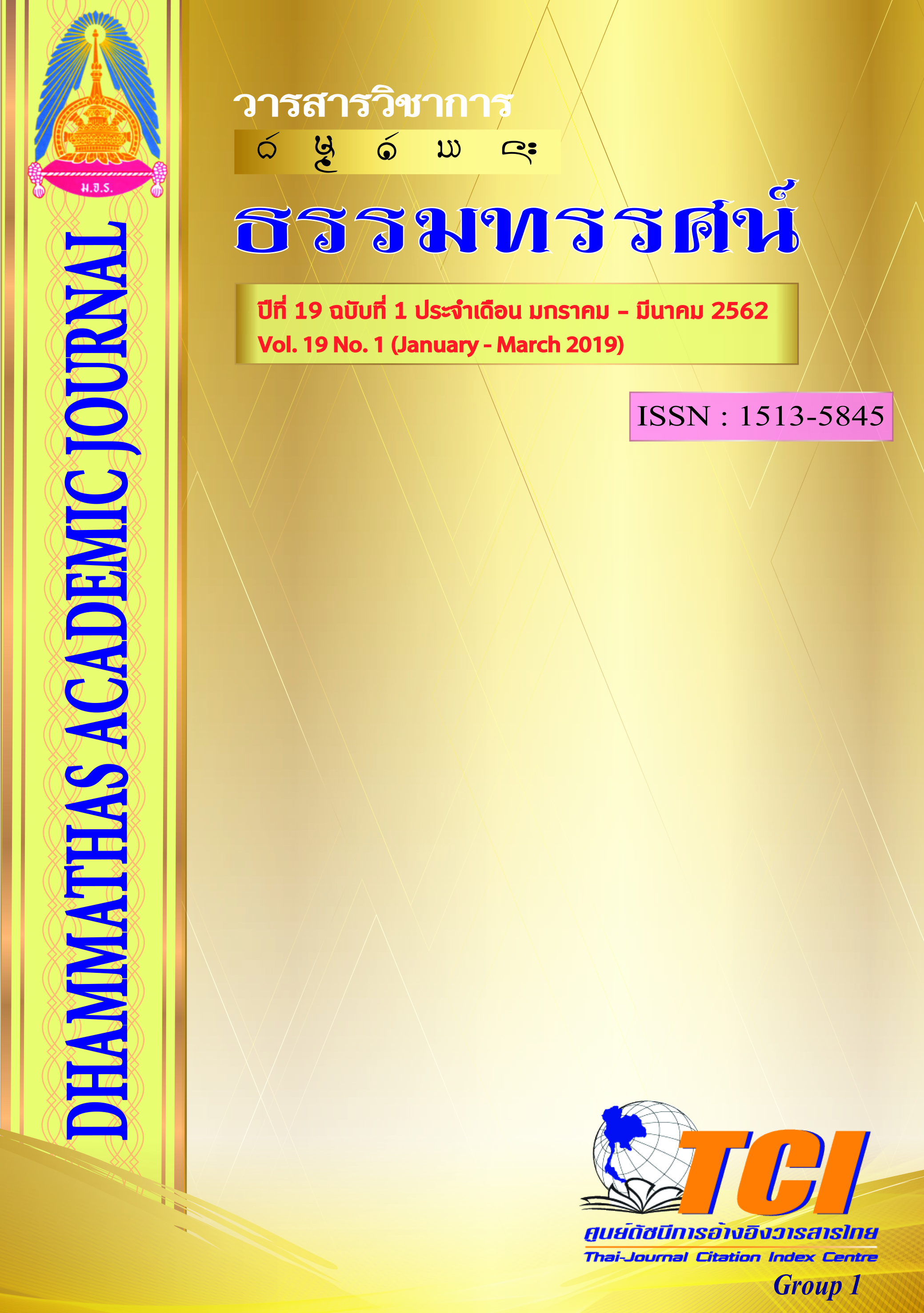Human Quality Development According to the Five Precepts
Main Article Content
Abstract
The objectives of this research were: 1) to study the concepts, theories and development of human quality according to the five precepts (pañca sīla); 2) to study the process of the human quality development in the prototype community according to the five precepts in Chaiyaphum province; 3) to study the network creation of the prototype community development to improve the human quality according to the five precepts in Chaiyaphum province. This study employed the documentary and qualitative research methodologies together with the fieldwork study. The key informants of this research included 50 of governmental officers, monks, community leaders and relevant persons.
The research results revealed that: the concepts, theories and development of human quality according to the five precepts are the systematic process of human development in physical, mental and intellectual aspects according the principles of the five precepts (not cruel, not desire, not too much love, not to have bad mouth, not intoxicated) and the five dhammas (pañca-dhammas) (loving kindness, right livelihood, sexual tranquilization, vocal truth, right consciousness). This is the basic principles to create the four development (bhāvanā): physical development (kāya-bhāvanā), moral development (sīla-bhāvanā), emotional development (citta-bhāvanā) and intellectual development (paññā-bhāvanā) to achieve the ultimate goals of life: happiness, freedom, goodness and beauty of life.
The process of the development of human quality of the prototype community according to the five precepts in Chaiyaphum province was carried out in three dimensions: 1) living in accordance with the five precepts; 2) the model for organizing the activities of life development according to the five precepts; 3) the model of the activities to promote works of the sub-district public training unit by the projects such as the five precepts observation villages, no alcohol in meritorious events, grief events without alcohol and vices, sufficiency economic villages, moral community villages and Thai meritorious and dhamma fields. The outcomes of these activities become tangible in the organizational level when the governmental agencies joined to plan the projects and organize the religious activities to upgrade the quality of life of human in the community through the aforesaid process.
The network creation of the prototype community development to improve the human quality according to the five precepts in Chaiyaphum province is the model of activity and project management of the government and Sangha sectors to create the collaboration, understanding and development of community perception, supporting them to realize their identity and be proud of their community and value of human life by organizing the religious activities as the learning process to create the working network leading to the tangible driven force in the dimensions of coexistence and cooperation to solve the problems with continuity and stainability. The outcome in the public level is that the public gave their collaboration to organize the religious activities and community activities related to their family living with essential motivation to children and youth to join the network.

